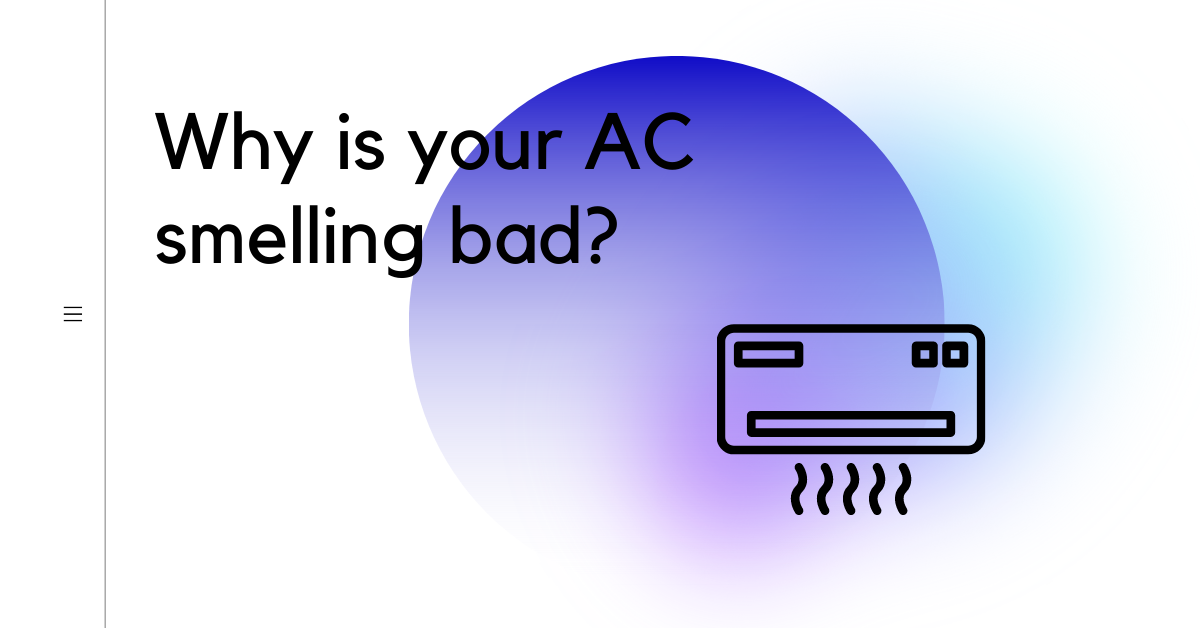Blog
Why is your AC smelling bad?
Why is your AC smelling bad? A bad odor emanating from your HVAC system can be an unpleasant and concerning issue. There are several possible causes of this problem, ranging from minor issues to more serious concerns. In this blog post, we will discuss some of the common reasons why your HVAC system could be smelling bad and what you can do to address it.
- Dirty air filters
A dirty air filter is one of the most common causes of bad smells in HVAC systems. A clogged filter can cause a buildup of dust and debris, which can produce a musty or dirty odor. Replace your air filters every 1-3 months, depending on usage, to prevent this issue.
- Mold and mildew growth
Moisture buildup in the HVAC system can lead to the growth of mold and mildew, which can produce a foul odor. Check for signs of water damage, such as leaks or condensation, and clean the affected areas with a bleach and water solution. You may also need to hire a professional to inspect and clean the system.
- Dead animals
Small animals, such as rodents or birds, can sometimes get trapped in the HVAC system and die, causing a strong and unpleasant odor. If you suspect this may be the cause of the bad smell, contact a pest control professional to remove the animal and clean the affected areas.
- Dirty ductwork
Dirt, dust, and debris can accumulate in the ductwork over time, producing a stale or musty odor. Have your ductwork cleaned by a professional to remove any buildup and improve the overall air quality of your home.
- Electrical issues
Electrical problems in the HVAC system, such as burning wires or overheated motors, can produce a burning or chemical odor. If you detect this type of smell, immediately turn off the system and contact a qualified HVAC professional to inspect and repair the system.
In conclusion, a bad odor coming from your HVAC system can be caused by a variety of issues, ranging from minor to more serious concerns. By identifying the cause of the odor and taking appropriate action, you can improve the comfort and safety of your home. However, if you are unsure of how to proceed or if the problem persists, it is always best to contact a qualified HVAC professional for assistance.


